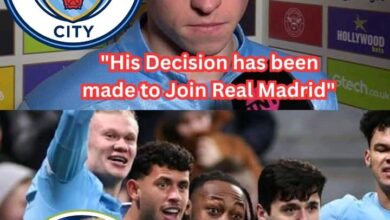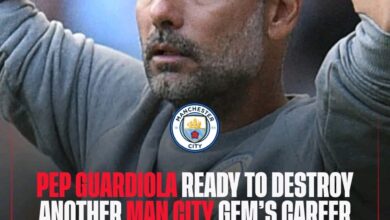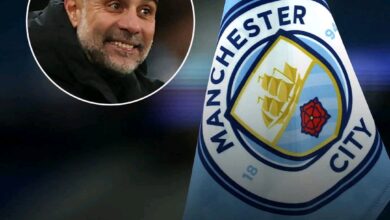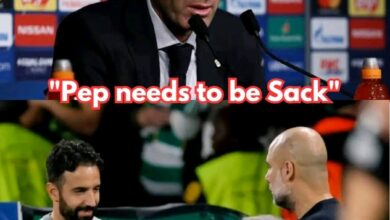Manchester City Complete Major Academy Coup with Signing of England U17 Captain Freddie Lawrie
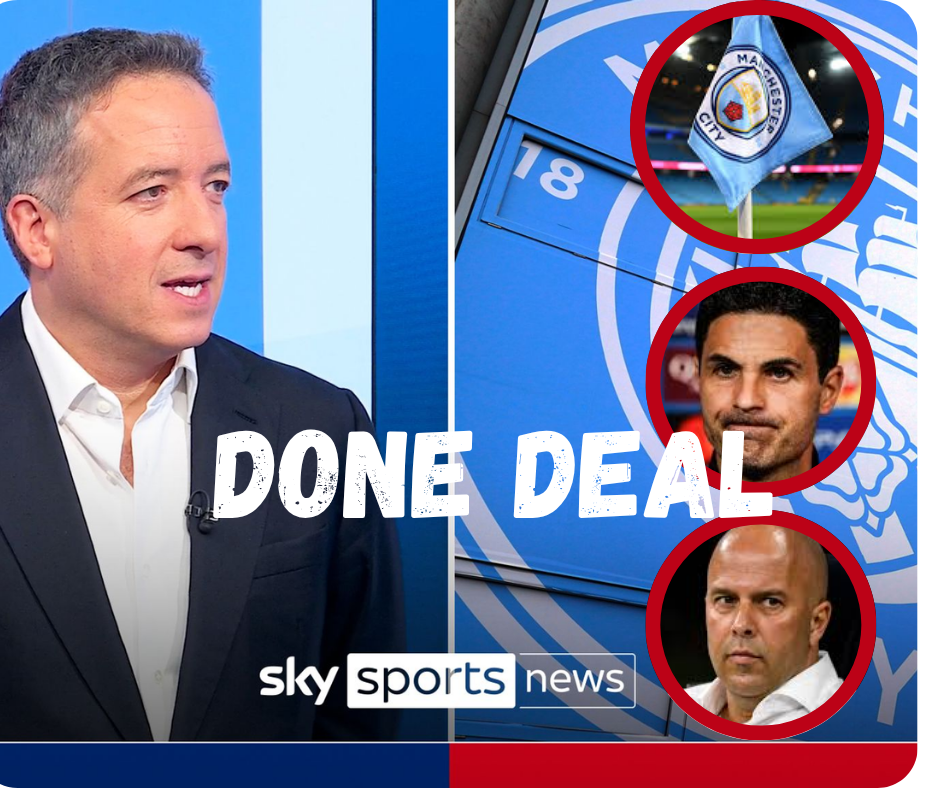
Manchester City have secured one of England’s most promising young talents with the completion of Freddie Lawrie’s transfer from Aston Villa’s academy, following confirmation from transfer specialist Fabrizio Romano that the 16-year-old midfielder has successfully passed his medical and signed a long-term contract with the Premier League champions.
The acquisition of Lawrie represents a significant statement of intent from Manchester City’s academy structure, as they continue to invest heavily in securing the brightest prospects from across England’s youth football ecosystem. The England U17 captain’s decision to join City over remaining at Villa Park highlights the growing reputation of the Etihad Stadium as the premier destination for young talent development.
The Transfer Timeline: From Speculation to Confirmation
The pursuit of Freddie Lawrie has been one of the most closely watched academy transfer sagas of the summer, with Manchester City first being linked with the midfielder as part of their broader recruitment drive targeting England’s most promising young players. The transfer represents the culmination of months of careful planning and relationship building between City’s academy staff and the player’s representatives.
Romano’s confirmation on Thursday evening brought an end to weeks of speculation, with the Italian journalist’s announcement on social media platform X providing the definitive word on a deal that had been months in the making. The signing comes as part of what Romano described as a “busy window for Manchester City Academy,” highlighting the club’s commitment to refreshing their youth ranks with elite-level talent.
The medical process, completed on Thursday, was the final formality in a transfer that had been widely anticipated within academy football circles. City’s medical team conducted comprehensive assessments of the young midfielder, ensuring he was physically prepared for the demands of training at one of Europe’s most advanced youth facilities.
Lawrie’s Profile: England’s Next Generation Leader
Freddie Lawrie’s status as England U17 captain speaks volumes about his leadership qualities and football intelligence at such a young age. The 16-year-old’s ability to captain his country demonstrates the maturity and character that have made him one of the most sought-after prospects in English youth football.
Primarily deployed as a central midfielder, Lawrie possesses the technical ability and tactical awareness that align perfectly with Manchester City’s philosophy of possession-based football. His versatility, evidenced by his ability to operate as a centre-back for England youth teams, provides additional value and demonstrates the adaptability that modern football demands.
The midfielder’s development trajectory has been impressive, with his performances for both club and country catching the attention of scouts from across Europe’s elite clubs. His ability to dictate tempo from deep positions, combined with his defensive awareness and distribution skills, mark him as a player with the potential to develop into a complete midfielder.
Lawrie’s leadership qualities extend beyond his captaincy duties, with coaches consistently praising his professionalism and dedication to improvement. These attributes, combined with his technical ability, suggest he possesses the mental fortitude necessary to thrive in Manchester City’s demanding environment.
Aston Villa’s Perspective: A Bitter Pill to Swallow
The loss of Freddie Lawrie represents a significant blow to Aston Villa’s academy aspirations, particularly given the club’s recent investments in their youth infrastructure and development programs. Villa’s determination to retain the midfielder was evident in their “strong offer” to extend his scholarship terms, as reported by The Athletic.
The Birmingham club’s efforts to keep Lawrie reflected their understanding of his exceptional potential and the value he represented to their long-term planning. Villa’s academy has produced several players who have progressed to first-team football, and losing a player of Lawrie’s caliber disrupts their carefully constructed development pathway.
However, Villa’s position was complicated by the natural expiration of Lawrie’s scholarship terms, which provided the player with an opportunity to explore other options. The club’s inability to guarantee a clear path to first-team football, combined with Manchester City’s superior resources and track record of youth development, ultimately proved decisive in the player’s decision-making process.
The compensation package that Manchester City must pay to Villa provides some consolation for the Birmingham club, though it cannot fully offset the disappointment of losing such a promising prospect. The financial arrangement reflects the value placed on elite youth talent and the recognition that developing such players requires significant investment and resources.
Manchester City’s Academy Strategy: Building for the Future
The Lawrie signing represents the latest phase in Manchester City’s comprehensive approach to academy development, which has seen the club invest heavily in both infrastructure and talent acquisition. The decision to target England’s brightest prospects reflects a strategic shift toward ensuring a steady pipeline of domestic talent capable of meeting the demands of first-team football.
City’s academy strategy extends beyond simply acquiring talented players; it encompasses creating an environment where young prospects can develop their skills while understanding the tactical and technical demands of elite football. The appointment of experienced coaches and the provision of world-class facilities create conditions that maximize the potential of players like Lawrie.
The timing of Lawrie’s arrival coincides with a period of significant success for Manchester City’s academy system. The Under-21s’ historic fourth Premier League 2 title, combined with the Under-18s’ record-breaking season, demonstrates the effectiveness of the club’s development programs and provides incoming players with evidence of the pathway to success.
Academy director Thomas Kruecken’s emphasis on player development and progression to first-team football creates an environment where talented youngsters can visualize their long-term futures. The recent breakthrough of players like Nico O’Reilly, who made 21 first-team appearances last season, provides tangible evidence of the opportunities available to those who excel in the academy system.
The Broader Context: English Youth Football’s Evolution
Freddie Lawrie’s transfer reflects broader trends in English youth football, where the most promising prospects are increasingly concentrated among the elite clubs with the resources and infrastructure to maximize their development. This concentration of talent creates both opportunities and challenges for the development of English football.
The movement of players like Lawrie between Premier League academies demonstrates the competitive nature of youth recruitment, where clubs must constantly innovate and invest to attract the best prospects. This competition ultimately benefits player development, as clubs are forced to provide increasingly sophisticated programs and facilities to remain competitive.
However, the concentration of talent also raises questions about the broader development of English football, particularly regarding the opportunities available to clubs lower down the pyramid. The financial advantages enjoyed by clubs like Manchester City create systemic challenges that require careful consideration from football’s governing bodies.
Technical Analysis: What Lawrie Brings to City
From a technical perspective, Freddie Lawrie’s skill set aligns perfectly with Manchester City’s tactical philosophy and playing style. His ability to operate as a deep-lying playmaker provides the foundation for the possession-based approach that characterizes City’s football at all levels.
The midfielder’s distribution skills are particularly impressive, with his ability to play both short, intricate passes and longer, more direct balls providing tactical flexibility. His understanding of when to release the ball quickly and when to retain possession demonstrates the football intelligence that has made him such a sought-after prospect.
Defensively, Lawrie’s positioning and anticipation skills enable him to break up opposition attacks effectively while maintaining the disciplined structure that City’s system demands. His versatility in being able to drop into defensive positions when required adds another dimension to his value as a player.
The physical aspects of his game, while still developing given his age, show promising signs of the athleticism required to compete at the highest level. His work rate and commitment to both phases of the game suggest he possesses the mentality necessary to thrive in City’s demanding environment.
Development Pathway: Learning from Recent Success Stories
The pathway ahead for Freddie Lawrie at Manchester City is illuminated by the recent success of academy graduates who have successfully transitioned to first-team football. Players like Nico O’Reilly, Jahmai Simpson-Pusey, and Kaden Braithwaite have demonstrated that the route from academy to first team remains viable for those who combine talent with dedication.
O’Reilly’s progression, in particular, serves as an inspiring example for incoming players like Lawrie. The midfielder’s 21 first-team appearances last season represent the type of breakthrough that academy prospects aspire to achieve, and his success validates the effectiveness of City’s development programs.
The integration process for academy players at City involves careful management of their development, with coaches monitoring their progress across technical, tactical, physical, and mental dimensions. This holistic approach ensures that players like Lawrie are prepared for the demands of elite football while maintaining their individual characteristics and strengths.
The Competitive Landscape: Staying Ahead of Rivals
Manchester City’s success in securing Freddie Lawrie’s signature demonstrates their ability to compete effectively with rivals in the youth recruitment market. The reported interest from other clubs, including Tottenham and the ongoing speculation about players like Kaylen Moss from Liverpool’s academy, highlights the competitive nature of elite youth football.
The club’s ability to attract players like Lawrie reflects not only their financial resources but also their reputation for developing young talent and providing clear pathways to first-team football. This reputation has been built through years of investment in coaching, facilities, and support systems that create optimal conditions for player development.
The signing also represents a strategic victory over domestic rivals, particularly given the player’s status as England U17 captain. Securing such high-profile prospects helps maintain City’s position as the premier destination for young English talent, while simultaneously weakening the development pipelines of competing clubs.
Financial Implications: Investment in the Future
While the specific financial details of Freddie Lawrie’s transfer have not been disclosed, the compensation package that Manchester City must pay to Aston Villa reflects the significant value placed on elite youth talent in the modern game. These investments in young players represent a strategic approach to squad building that can provide substantial returns over time.
The financial model underlying youth recruitment recognizes that while not every prospect will reach first-team level, those who do can provide exceptional value both in terms of performance and potential transfer fees. The development of academy graduates also helps clubs meet homegrown player requirements while reducing dependence on expensive transfer market acquisitions.
City’s willingness to invest in compensation fees for promising youngsters demonstrates their commitment to building a sustainable model for long-term success. This approach recognizes that the most successful clubs combine smart recruitment of established players with the development of young talent through their academy systems.
Looking Forward: Integration and Development
The immediate priority for Freddie Lawrie will be integration into Manchester City’s academy structure and adaptation to the club’s playing philosophy and training methods. The transition from Aston Villa’s system to City’s approach will require careful management to ensure the player’s continued development.
The support systems in place at City’s academy, including specialized coaching, sports science, and educational programs, will play crucial roles in helping Lawrie realize his potential. The club’s holistic approach to player development recognizes that success requires attention to all aspects of a young player’s growth and maturation.
The ultimate measure of this transfer’s success will be Lawrie’s progression through City’s academy system and his eventual breakthrough to first-team football. However, the foundation for success appears to be in place, with the player’s talent, City’s resources, and the club’s track record of youth development creating optimal conditions for achievement.
Conclusion: A Strategic Masterstroke
The acquisition of Freddie Lawrie represents more than just another academy signing for Manchester City—it symbolizes the club’s commitment to maintaining their position at the forefront of English football’s youth development. The signing of England’s U17 captain demonstrates City’s ability to attract the very best young talent while providing a clear statement of intent regarding their long-term planning.
As Lawrie begins his journey at Manchester City, the foundations are in place for what could prove to be a transformative period in his development. The combination of his natural talent, leadership qualities, and the world-class environment at City’s academy creates the conditions necessary for exceptional growth and achievement.
The transfer also reflects the broader evolution of English youth football, where the most promising prospects are increasingly concentrated among clubs with the resources and expertise to maximize their development. While this concentration presents challenges for the broader football ecosystem, it also creates opportunities for exceptional talents like Lawrie to reach their full potential under optimal conditions.
For Manchester City, the signing represents another strategic victory in their ongoing efforts to build a sustainable model for long-term success. By securing the services of players like Lawrie, the club continues to invest in a future that promises to be as successful as their recent achievements, ensuring that the next generation of City players will be equipped to maintain the club’s position among Europe’s elite.








